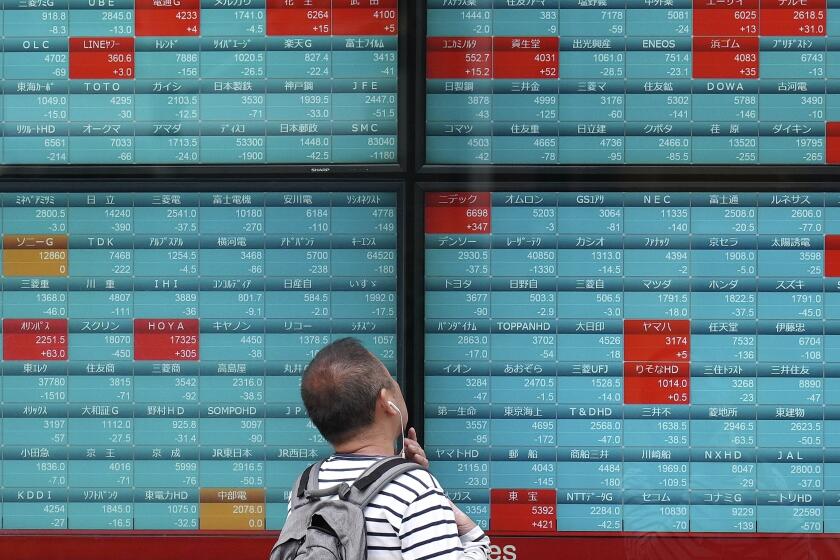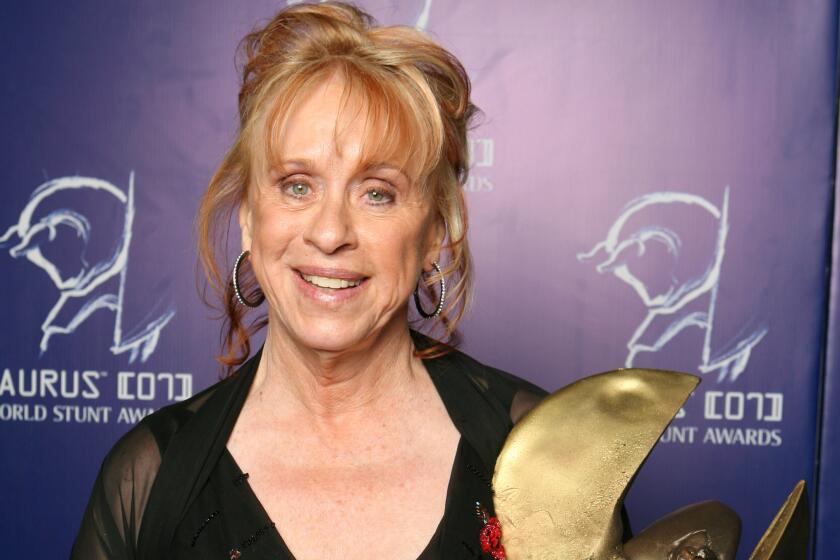Merck’s Vioxx tactic pays off
Merck & Co.’s decision to pay $4.85 billion to settle tens of thousands of claims from patients who took the popular painkiller Vioxx may stiffen the resolve of other companies facing litigation over pharmaceutical products or other consumer goods.
The settlement, announced Friday, may also vindicate the drug maker’s initial strategy of aggressively fighting virtually every injury claim, legal experts said.
Other corporate defendants that have stonewalled plaintiffs, including asbestos manufacturers, have ended up in bankruptcy. Merck pursued a more nuanced approach -- trying enough cases to get a sense of how juries valued the drug-related injuries and then opting for a comprehensive agreement limiting liability and allowing the company to move on.
The nearly $5-billion fund, which could cover as many as 26,500 of the more than 30,000 cases filed against the company, “is actually a good settlement for Merck,” said Benjamin Zipursky, a Fordham Law School professor who studies product liability.
Although the company has been hit with several multimillion-dollar verdicts, Merck won in 12 of the 17 trials to date and has yet to pay out anything while appealing its losses.
“Playing hardball can be a very smart idea sometimes,” Zipursky said.
The deal covers most of the lawsuits filed against the company in U.S. courts, removing a millstone that has weighed on Merck since it pulled Vioxx off pharmacy shelves three years ago.
The company withdrew the blockbuster painkiller, which racked up $2.5 billion in annual sales, in September 2004 after a study showed it doubled the risk of heart attack and stroke in patients taking it for more than 18 months. By that point more than 20 million people in the United States had taken the drug.
Individual payouts will depend on the number of people who qualify for the settlement, their age, health status and the length of time they took the drug. Payments could start as early as August.
Plaintiffs dissatisfied with their offer could still go to trial, but more than 85% of eligible claimants must decide to participate for the settlement to take effect.
Merck stressed that the agreement was not a class-action settlement and that it was not admitting fault.
Lawyers for Merck and the plaintiffs forged the agreement in meetings over the last year with the four judges overseeing more than 95% of the current Vioxx cases nationwide. The accord, which the parties signed at 5 a.m. Central time on Friday after a final all-night negotiating session in New Orleans, was announced jointly by U.S. District Judge Eldon Fallon of New Orleans, New Jersey Superior Court Judge Carol Higbee and Los Angeles County Superior Court Judge Victoria Gerrard Chaney. Texas County Court Judge Randy Wilson was involved but unable to attend because of a schedule conflict.
Claimants in about two-thirds of the 3,000 cases filed in Los Angeles will be eligible to participate in the settlement. The deal is limited to Vioxx users or their relatives who allege that the drug caused stroke, heart attacks or sudden cardiac death. Plaintiffs who blame the drug for gastrointestinal or other problems will not be covered.
“This is a good and responsible agreement that will allow the company to concentrate even more fully on its mission of discovering, developing and delivering novel medicines and vaccines,” Merck Chief Executive Richard T. Clark said in a statement.
The company’s nearly $5-billion payout represents more than 20% of its $22.6 billion in revenue last year.
Los Angeles attorney Thomas Girardi, who represents more than 800 Vioxx cases, acknowledged that there were “significant issues” facing plaintiffs in the cases. Many had preexisting medical problems, which made it more difficult to prove that the drug caused their heart attacks or strokes.
“Some excellent trial lawyers” have gone up against Merck, he noted, but the Whitehouse Station, N.J.-based company had won the majority of those cases.
Moreover, Girardi said, cases pending before the U.S. Supreme Court could bar plaintiffs from suing over injuries caused by drugs that had won approval by the Food and Drug Administration.
“When you deal with such a complicated situation, the goal of a plaintiffs’ lawyer is to try to achieve as much fairness as possible,” he said.
Newport Beach plaintiffs’ attorney Mark P. Robinson Jr. called the settlement “a fair approach for future cases.” Robinson won a $51-million verdict against Merck last year from a New Orleans federal jury on behalf of a health-conscious retired FBI agent who suffered a heart attack at age 58 after taking the blockbuster drug for about 2 1/2 years.
“They said their strategy was to try every case, but they’re settling,” he said.
The fact that studies strongly linked Vioxx with a discrete set of “signature” injuries made settlement appealing to Merck, said Stephan Landsman, who teaches tort law at DePaul University College of Law in Chicago. Landsman said the company appeared to have learned from the experience of other companies that rejected efforts to settle and saw their legal costs spiral out of control.
Other factors also may have triggered the agreement. Because statutes of limitations on filing new claims have largely passed in California and several other states, Fordham’s Zipursky said, Merck could be certain its offer would not trigger new filings.
The tens of thousands of existing cases threatened to create a major logjam in the courts where they were concentrated, prompting the four judges to spearhead the negotiations, said Allan Parachini, spokesman for the Los Angeles County Superior Court.
The Vioxx deal may set a model for agreements in litigation involving widespread instances of food poisoning and cardiac defibrillators and other products, legal experts said.
“You stand your ground, set some case values through trial and at the same time deter the marginal cases from filing,” Landsman said.
Merck still faces lawsuits brought by attorneys general in New York and Colorado and other cases seeking reimbursement for millions of dollars in public funds spent on Vioxx prescriptions for patients with preexisting heart conditions.
Wall Street seemed to like the deal, sending Merck’s stock up $1.13, or 2%, to $55.90.
--






